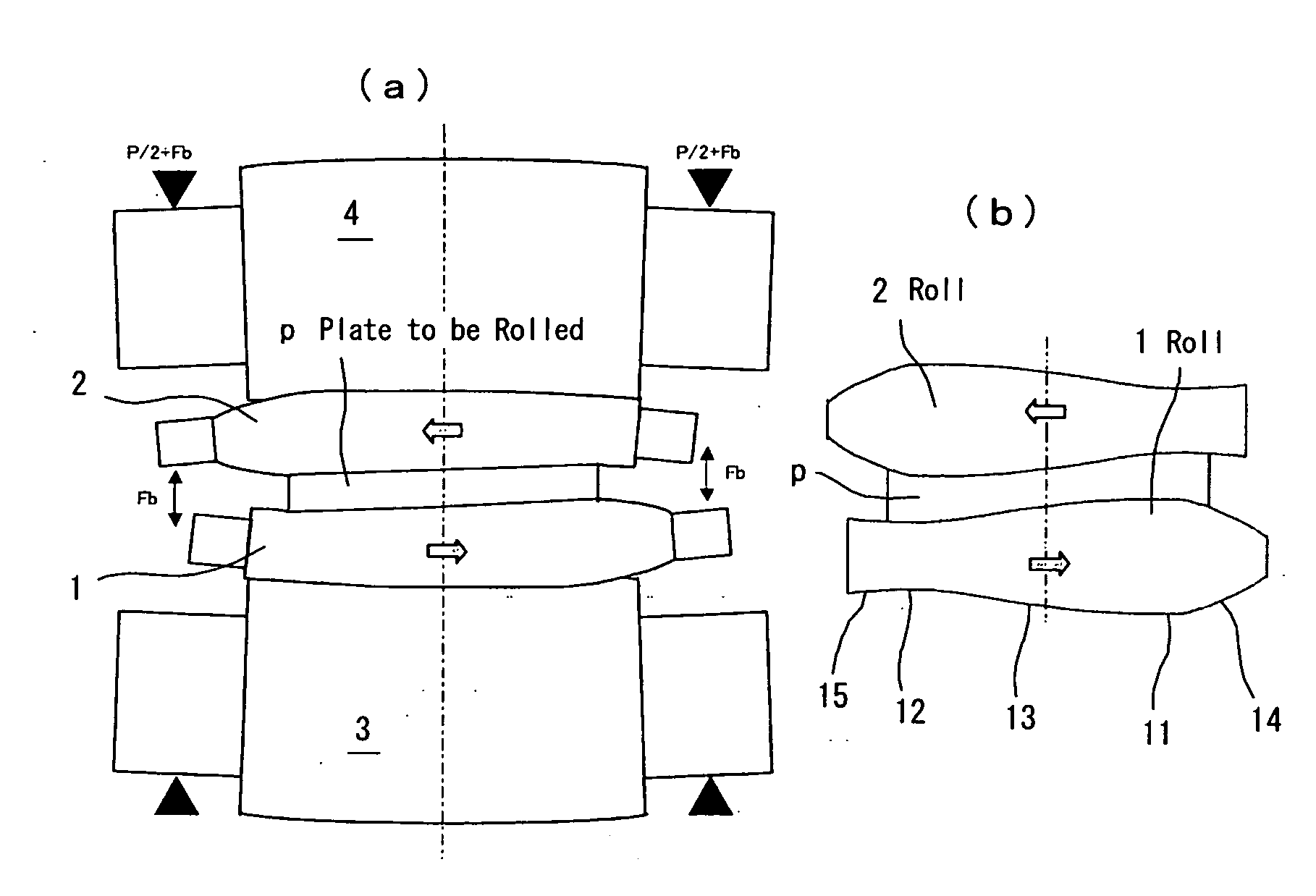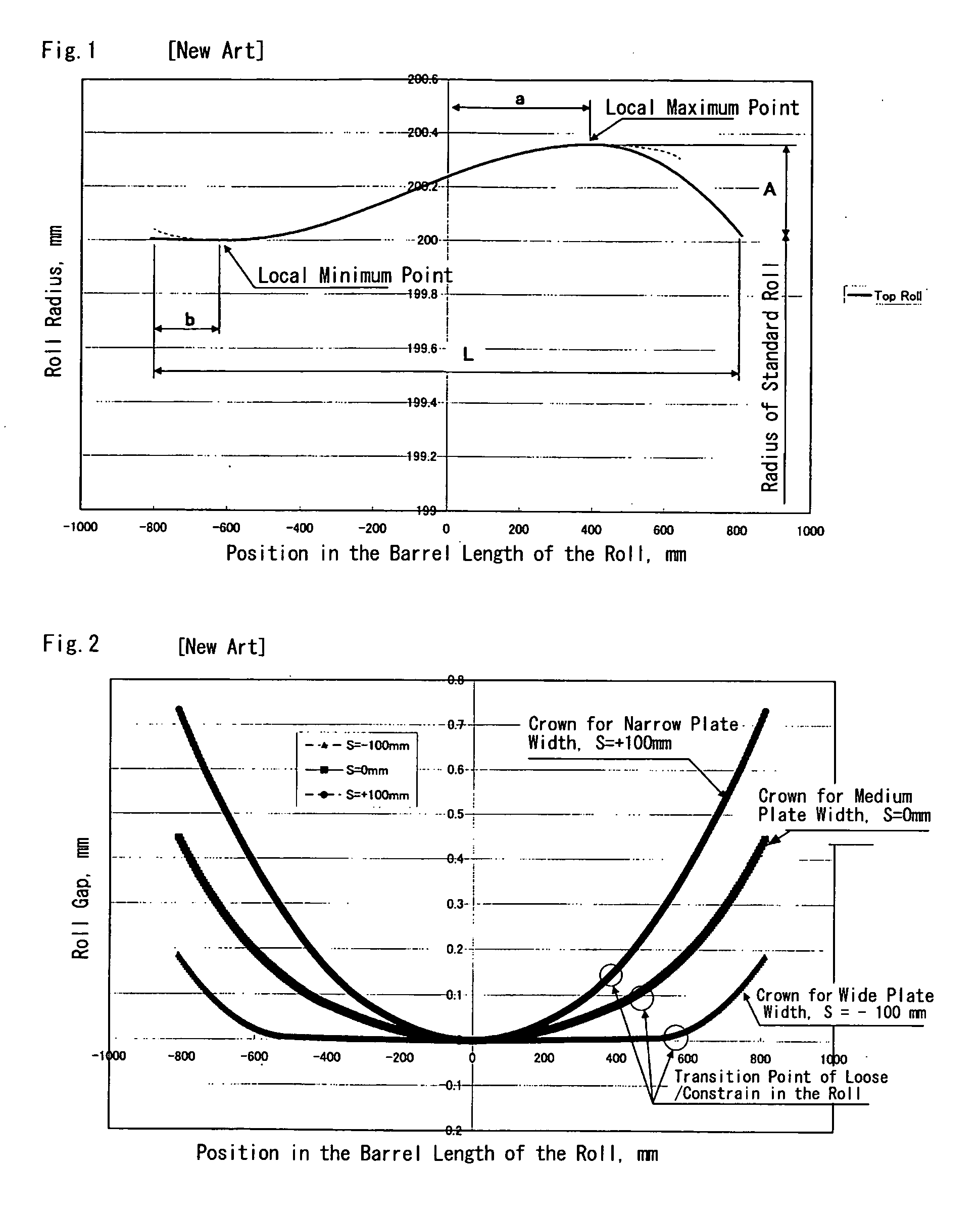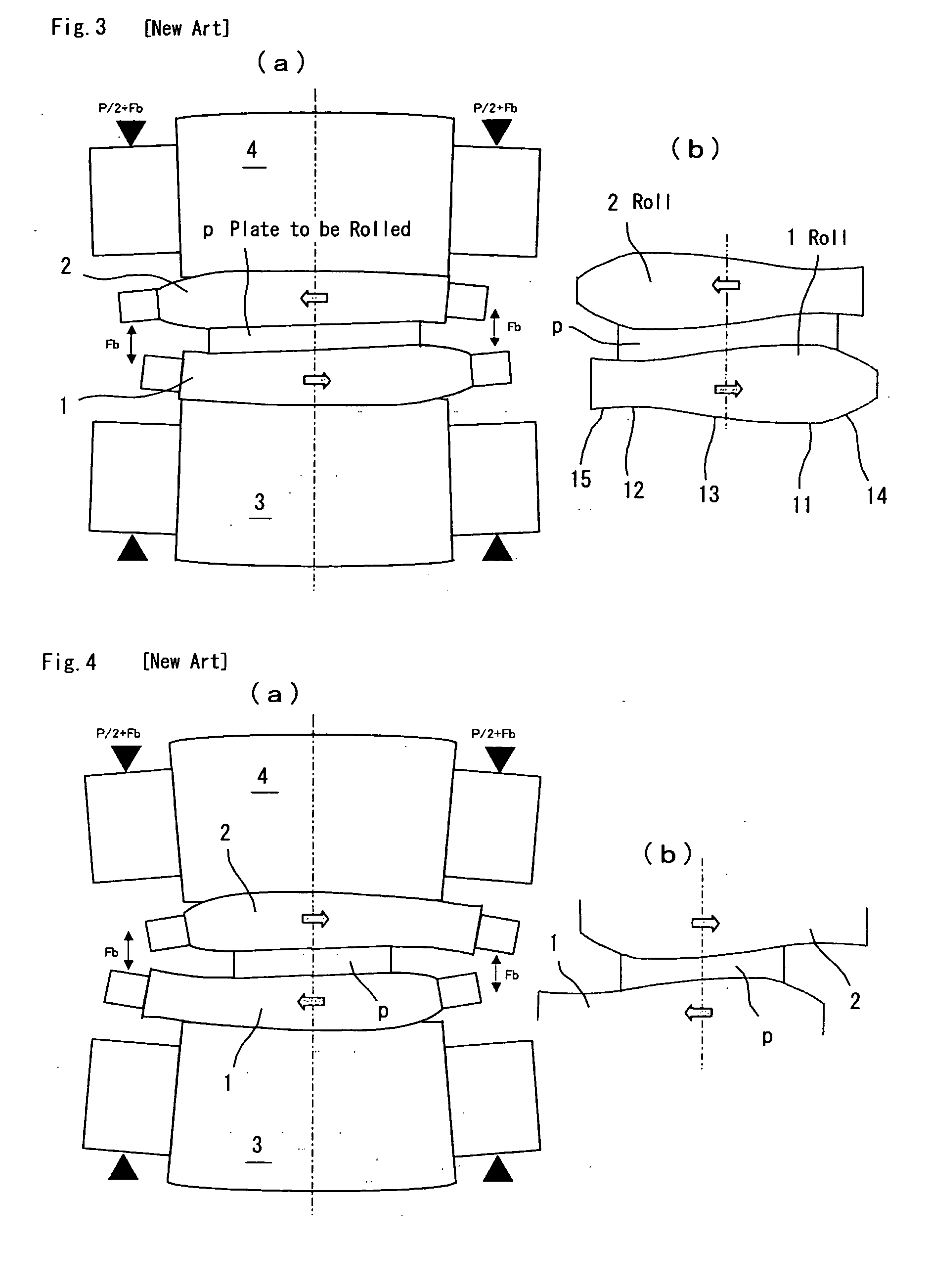Roll, Rolling Mill and Rolling Method
a technology of rolling mill and rolling mill, which is applied in the direction of manufacturing tools, counter-pressure devices, and profile control devices, etc., can solve the problems of reducing affecting the accuracy of rolling, so as to reduce the edge drop, and improve the accuracy of rolling
- Summary
- Abstract
- Description
- Claims
- Application Information
AI Technical Summary
Benefits of technology
Problems solved by technology
Method used
Image
Examples
example
[0070]The following description is an example of the roll curve shown in FIG. 1.
[0071]Let L be a barrel length, a the distance of the local maximum point from the center of the barrel length of the roll, b the distance of the local minimum point from the end of the barrel length of the roll, and A the difference of the radius of the local maximum point and the local minimum point.
[0072]When the roll radius f (X′) on each point of the surface is composed of a cosine function with amplitude A between the local minimum point and the local maximum point, the roll curve between them is represented by the equations (a) and (2) such as:
X′=π / (L / 2+a−b)*(X−b) (1)
f(X′)=−A / 2*COS (X′)+R0 (2)
[0073]R0: Standard roll radius
[0074]X represents the arbitrary axial position from the end of the roll barrel, but in FIG. 1 the center is regarded as 0 for convenience of illustrating.
[0075]The region from the end of the roll barrel to the local minimum point represents the following quadratic equation w...
PUM
| Property | Measurement | Unit |
|---|---|---|
| width | aaaaa | aaaaa |
| width | aaaaa | aaaaa |
| width | aaaaa | aaaaa |
Abstract
Description
Claims
Application Information
 Login to View More
Login to View More - R&D
- Intellectual Property
- Life Sciences
- Materials
- Tech Scout
- Unparalleled Data Quality
- Higher Quality Content
- 60% Fewer Hallucinations
Browse by: Latest US Patents, China's latest patents, Technical Efficacy Thesaurus, Application Domain, Technology Topic, Popular Technical Reports.
© 2025 PatSnap. All rights reserved.Legal|Privacy policy|Modern Slavery Act Transparency Statement|Sitemap|About US| Contact US: help@patsnap.com



